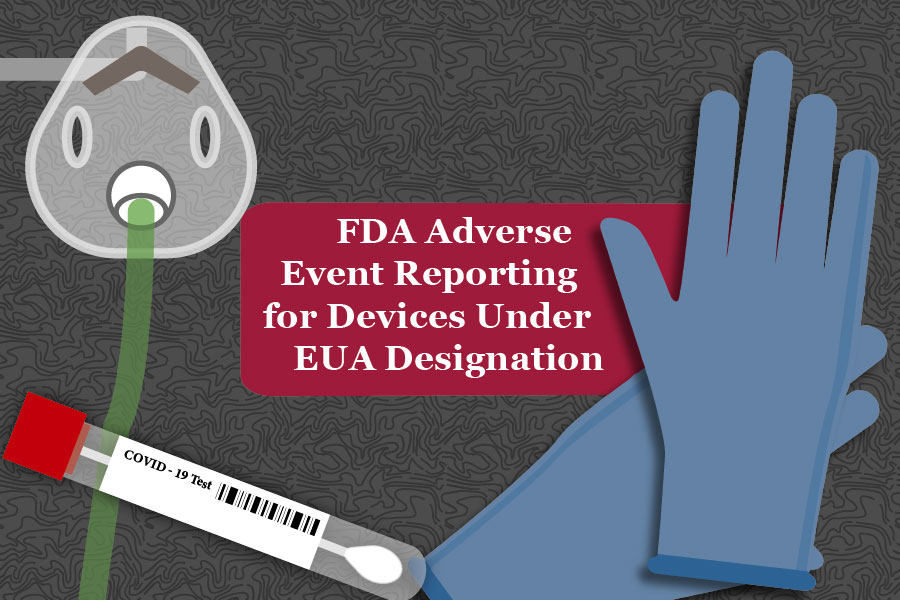As several PPEs, Ventilators, test kits, and other devices have been on the US market for quite some time now under the EUA program, the FDA outlined its expectations surrounding adverse event reporting for these medical devices. 1
FDA released a guidance document in a question and answer format to help manufacturers submit the adverse event reports in a timely manner and answer some frequently asked questions.
Although FDA issued Emergency Use Authorizations for these devices, the adverse event reporting requirements are similar to that of a conventionally cleared/approved device in accordance with 21CFR803, which includes submission of medical device reports. These medical device reports must be submitted electronically via the electronic medical device reporting system (eMDR), which includes the creation of an account on the FDA Electronic Submissions Gateway and completing Form 3500A.1
Manufacturers must also follow the time frames for submitting such reports which is no later than 30 calendar days after becoming aware of the reportable event or within 5 calendar days for events requiring a field action/recall. The guidance also emphasizes that these time frames are not dependent on when the incident occurred, but instead are based on when the manufacturer becomes aware of the adverse event. The guidance also urges submitters, to include appropriate product codes to ensure that the MDR can be appropriately analyzed and remedial actions can be taken as early as possible.1
If you have a complaint related to your device cleared under an EUA, manufacturers are required to conduct adequate investigations to determine whether it is a reportable event. EMMA International can help you design a compliant complaint handling and adverse event reporting program for your company. Call us today at 248-987-4497 or email us at info@emmainternational.com to learn more on how we can help.
1 FDA (June 2020) Adverse Event Reporting for Medical Devices Under Emergency Use Authorization (EUA) or Discussed in COVID-19-Related Guidance Documents retrieved on 06/18/2020 from https://www.fda.gov/medical-devices/coronavirus-disease-2019-covid-19-emergency-use-authorizations-medical-devices/adverse-event-reporting-medical-devices-under-emergency-use-authorization-eua-or-discussed-covid-19?utm_campaign=2020-06-16%20CDRH%20New&utm_medium=email&utm_source=Eloqua






